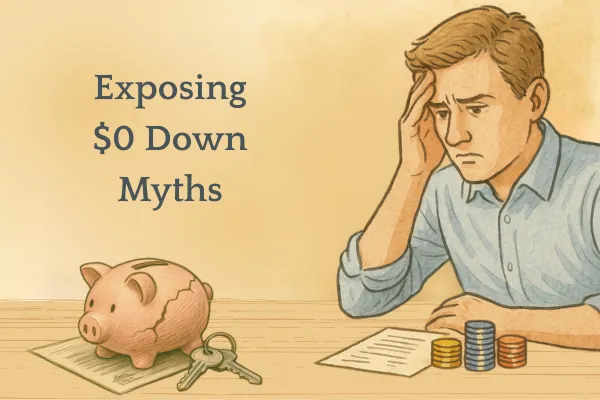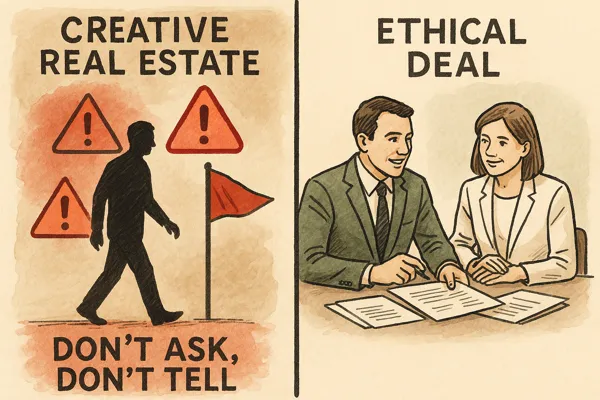Questions? Call now: 307-429-2947
The $0 Down Lie That Destroys New Investors
Published on: 05/08/2025
Chasing $0-down deals with no savings or plan? Learn the real steps to start investing smart and avoid costly beginner mistakes.
Creative FinanceBest Practices
How to get a subto deal under contract
Published on: 05/08/2025
Learn how to get your first subto deal under contract (or how to get better at getting solid deals).
ContractsCreative Finance
Understanding Wraparound Mortgages in Real Estate
Published on: 04/08/2025
Learn how wraparound contracts work, their benefits and risks like due-on-sale clauses, and how CreativeTC helps structure creative financing deals.
Creative FinanceWraps
“Don’t Ask, Don’t Tell” Doesn't Work in Creative Finance
Published on: 23/05/2025
Think “don’t ask, don’t tell” is going to allow you to plead ignorance? NOPE! Avoid legal risk with ethical, transparent deal structure & communications.
Creative Finance
© 2025 Creative TC LLC - All Rights Reserved.
All content on this site is protected by copyright and is not authorized for use by others.





